Fashion A Butterfly Garden
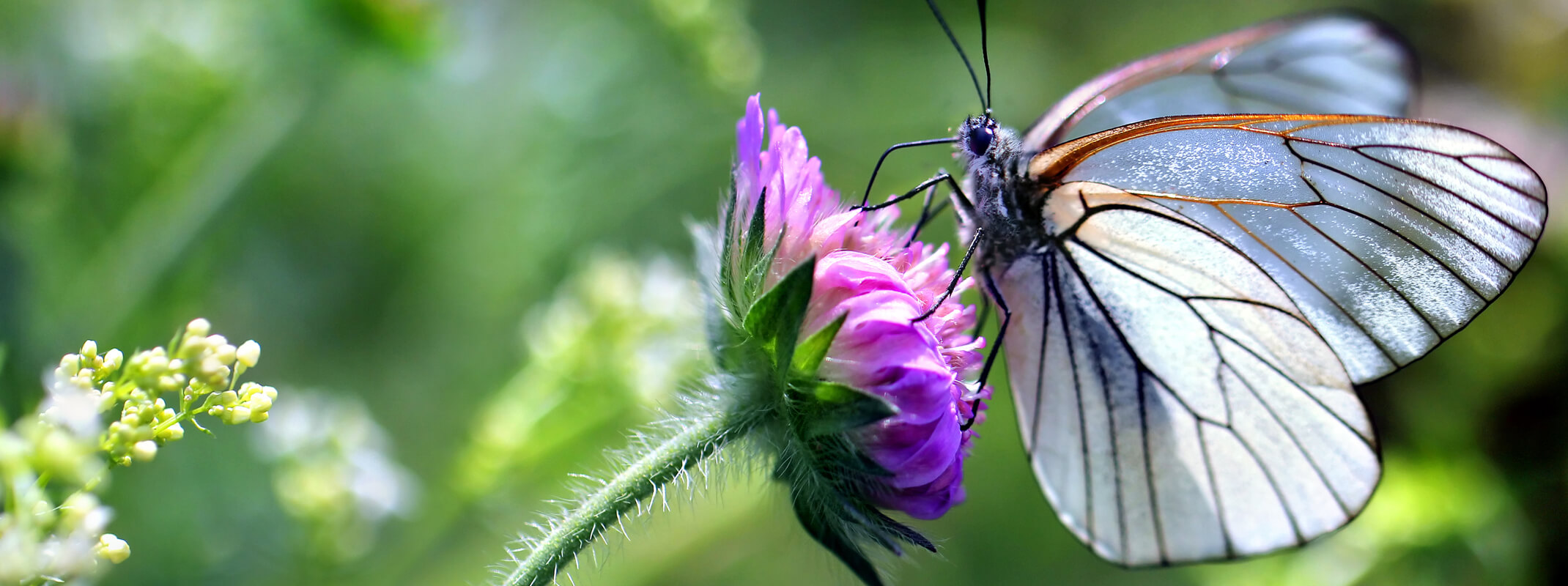
Butterflies are instrumental to keeping our ecosystems in balance. They have been impacted by habitat decline, drought and wide-spread pesticide use. Creating a butterfly sanctuary in your garden is easy, fun, entertaining and helps ensure the survival of our fluttering friends.
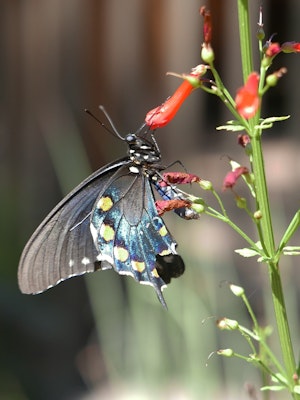 Important to know:
Important to know:
- Adult butterflies need high nectar flowers
- Large, trumpet shaped flowers will bring big butterflies
- Smaller blossoms will bring little butterflies
- Hungry caterpillars will need host plants
The need to feed
Food for caterpillars is just as important as nectar for butterflies. Good larval plants for our area include hollyhock, nasturtium, parsley, cabbage and passion vine. Plants often considered weeds are some of the best host plants: milkweed, plantain, fennel, mustard, mallow and thistle.
For maximum butterfly benefit, stay clear of hybrids and stick to the single flowers; double flowers produce less nectar. We have a selection of beautiful perennials, shrubs, vines and annuals that will not only look great in your California Landscape, butterflies will happily flutter to them.
List of Plants That Attract Butterflies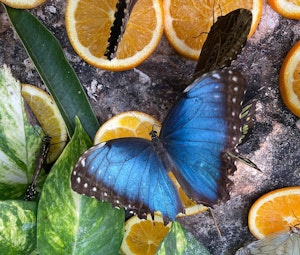
Water
Shallow muddy puddles are best; males need them to collect salts and minerals that they pass to eggs while mating.
You can make your own butterfly retreat using a saucer of sand topped with water. Be sure to add a pinch of salt and slice of citrus for extra nutrients for butterflies. Or just water your plants in the ground a little longer to leave shallow puddles for butterfly refuge. Wet areas often attract males of multiple species, making them prime viewing spots.
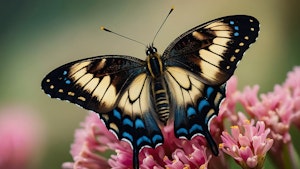
Sunshine
Make sure you have a spot for butterflies to soak in the rays. A pebble patio, stone wall, gravel path or big rock with a flat surface will do the trick.
Shelter
Create a windbreak for your garden made of plants that also provides nectar. Woodpiles, eaves and the leaves of bushes and trees can serve as protection on rainy days.
Best Practices
When using even the safest of pesticides the following guidelines will help minimize pesticide impact to butterflies and other wildlife:
- Do not spray on windy days to limit overspray
- Never spray open flowers – spray just before bud break
- Spray at dawn, dusk or at night when bees are less active
- Systemic insecticides translocate to flowers and can harm pollinators
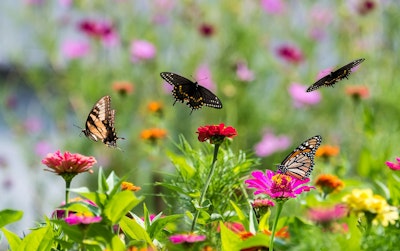
Enjoy the flutters of your butterflies
Once you’ve included the elements and adopted safer gardening practices, you’ll be pleased at the variety of butterflies and other visitors who will take up residence in the safe haven you’ve created.
Other Pollinators...

| Create A Hummingbird Habitat | Create A Bee Habitat | |
| Plants to Attract Hummingbirds | Plants to Attract Bees | Plants to Attract Birds |

